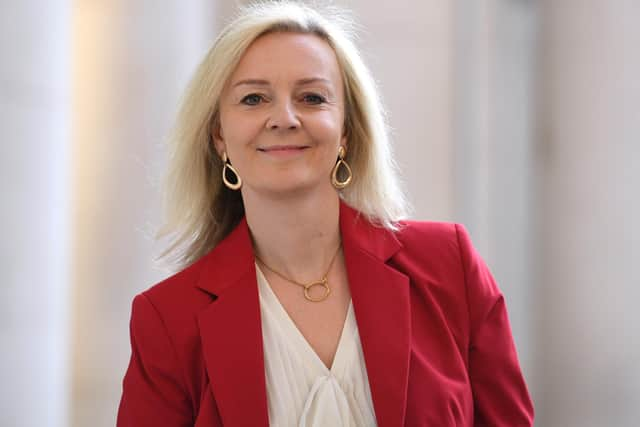History shows that free trade and farming don’t mix - Andrew Arbuckle


The politicians were ecstatic. Manufacturers were exporting record numbers of trains, boats and almost every other bit of machinery and, in return, cheap food was being imported. The population – their voters – were being fed cheaply and everyone, apart from the farmers, was happy.
Those with longer memories would recall, there had been another burst of enthusiasm for tariff free trade three decades earlier at the beginning of the 20th century.
Advertisement
Hide AdAdvertisement
Hide AdAgain, farmers in this country suffered as shiploads of frozen lamb were brought in from the other side of the world. Beef was imported from South America in large volumes and wheat from across the Atlantic poured into silos in docks up and down the west coast of the country.
These depressing times were not one-year wonders with low prices encouraging what was called ‘dog and stick’ farming as farmers cut their costs. There was year after year of sale prices being less than the cost of production.
Although it may seem impossible to believe nowadays, such was the downtrodden state of farming in the 1930s that landlords of good arable land in counties such as Essex, Norfolk and Suffolk were letting land rent free provided the tenant did no more than look after the land.
Back in those days, the recently formed farming unions organised massive rallies up and down the country objecting to the importation of food that undercut the home market.
One strong rallying point at these demonstrations was the highlighting of oats being imported from Germany where only a decade earlier the two nations had waged war across the trenches.
In both these periods of depression, the recovery came slowly and, in both cases the major uplift in farm prices came mainly as a result of war. By sinking thousands of tons of food heading to these shores, German battleships interrupted the free trade policy and helped re-value home production of food.
With that history, it is small wonder that there is great scepticism that free unfettered trade will now bring joy and profitability to agriculture in this country.
And yet that is what we are facing as we have a free trade biased UK government intent on driving new deals regularly involving the importation of food. The food involvement often being no more than a ‘make weight’ in a complex deal.
Advertisement
Hide AdAdvertisement
Hide AdWith a gleam in his eye, Prime Minister Boris Johnson has declared free trade to be a good thing and while his sidekick, Trade Minister, Liz Truss, an unlamented Environment Minister of not so long ago, may not have a gleam in her eye, she is approaching her mission of opening trade across the globe with a messianic zeal.
It is also worrying that when questioned on previous promises they have made to farmers, they and other politicians of the same ilk, tend to pat the primary producers in this country gently on the head and say, “Dinna fash yourselves.”
They know, and it is proven by slogans such as were written on the side of buses, that fibs can be told if they help to achieve the primary goal. All that is needed is a hand ruffling through deliberately dishevelled hair and an answer to a completely different question.
It is therefore quite natural that farmers are worried. No longer do they have the shelter provided by the EU and promises that were made when this country came out of the Common Market that future trade deals would be easy peasy seem of another world.
There seems little the farming community can do to mitigate the gloomy outlook. The industry no longer has the political clout it once had.
The future of farming may lie less in providing food and more in meeting less tangible targets such as cutting carbon emissions.
Not a jolly uplifting message for those wanting to work on the land but that seems to be the desire of today’s politicians.
Comments
Want to join the conversation? Please or to comment on this article.